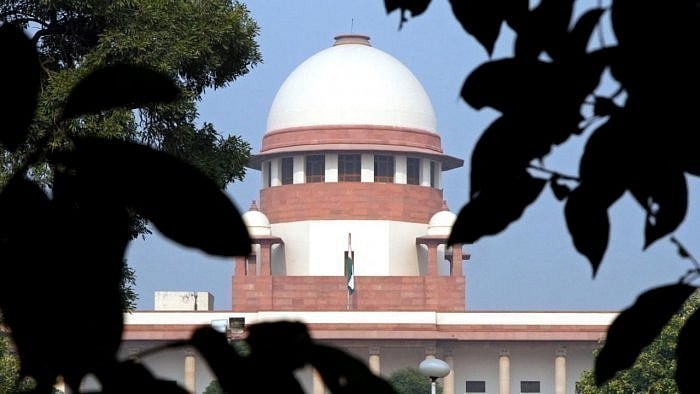
The Supreme Court of India.
Credit: PTI File Photo
New Delhi: The Supreme Court on Monday criticised the Enforcement Directorate, saying it has adopted a pattern of making allegations without evidence in a number of cases. It told the central agency that prosecution in such matters would fall flat before the court.
A bench of Justices Abhay S Oka and Ujjal Bhuyan was hearing a petition filed by Arvind Singh seeking bail in the alleged Rs 2,000-crore liquor scam in Chhattisgarh.
The bench said the central agency was making allegations against an accused in a liquor scam case without any evidence.
“This is a pattern adopted by the ED in a number of cases. You just make allegations without any evidence. The prosecution won't stand before the court in this manner,” the bench told Additional solicitor general S V Raju, representing the ED.
The law officer argued that Singh had earned Rs 40 crore in collusion with another man named Vikas Agarwal. The bench asked Raju whether Agarwal had been made an accused. Raju replied that he was absconding.
The bench pointed out that the central agency had alleged that Singh earned Rs 40 crore, but it is not able to show his connection “with this or any other company”.
Raju contended that a person can be controlling a company but it is not essential that he would be responsible for the conduct of the company.
"You should state whether he is the director of those companies, whether he is a majority shareholder, whether he is the managing director. Something has to be there," the bench told him.
The court scheduled the matter for further hearing on May 9.
The ED claimed the scam was allegedly executed by a syndicate of high-level state government officials, private persons and political executives. The agency claimed that they generated more than Rs 2,000 crore in tainted money in 2019-22.
The money laundering case originated from a 2022 income tax department charge sheet filed in a court in Delhi.
The ED alleged that bribes were collected from distillers in the state on a per liquor case basis procured from the CSMCL (state body for purchase and sale of liquor) and country liquor was being sold off-the-books. The agency claimed that bribes were taken from distillers to allow them to form a cartel and have a fixed market share.
